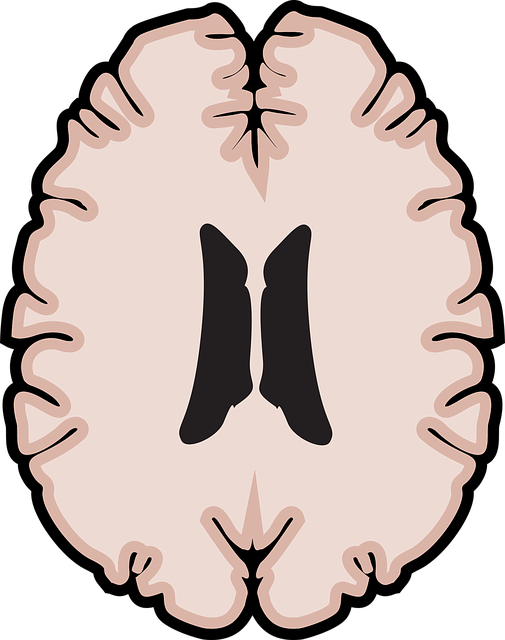Aurora Eating Disorders Therapy prioritises risk management as a core element of its mental health practice. By thoroughly assessing individual clients' unique circumstances, traumas, and stressors, therapists develop personalised interventions to address immediate concerns while equipping them with long-term coping skills for wellness. This approach includes cultural competency training, mental wellness coaching programs, and proactive self-care strategies for therapists, fostering a supportive environment for clients to heal, grow, and thrive. Through continuous adaptation based on research, industry standards, and client feedback, Aurora Eating Disorders Therapy ensures effective risk management planning tailored to each individual's needs.
At Aurora Eating Disorders Therapy, effective risk management planning is integral to our commitment to providing safe and compassionate mental health care. This article explores a structured approach to identifying and mitigating risks specific to eating disorder therapy settings. We delve into understanding the nuances of risk within this domain, from recognizing potential hazards to defining vulnerable populations. A comprehensive risk management plan, implementation strategies, continuous evaluation, and improvement processes are dissected, offering valuable insights for professionals at Aurora Eating Disorders Therapy and beyond.
- Understanding Risk in Mental Health Practice at Aurora Eating Disorders Therapy
- Identifying Potential Hazards and Vulnerable Populations
- Developing a Comprehensive Risk Management Plan
- Implementing Strategies for Safe and Effective Care
- Continuous Evaluation and Improvement in Risk Mitigation
Understanding Risk in Mental Health Practice at Aurora Eating Disorders Therapy

At Aurora Eating Disorders Therapy, understanding risk is a cornerstone of our mental health practice. We recognize that various factors can contribute to an individual’s vulnerability, especially in the context of eating disorders. By thoroughly assessing each client’s unique circumstances, history, and current presentation, we identify potential risks and develop tailored interventions. Our approach involves not only addressing immediate concerns but also equipping individuals with coping skills for long-term mental wellness.
Aurora Eating Disorders Therapy offers comprehensive risk management planning that incorporates healthcare provider cultural competency training and the development of mental wellness coaching programs. We believe in empowering clients with the knowledge and tools necessary to navigate challenges effectively. Through these strategies, we aim to foster a supportive environment where individuals can heal, grow, and thrive, ultimately transforming lives and breaking down barriers related to eating disorders.
Identifying Potential Hazards and Vulnerable Populations

Mental health professionals, like those at Aurora Eating Disorders Therapy, often work with individuals facing complex challenges. Identifying potential hazards is a critical step in risk management planning. These hazards can include a range of factors, from personal traumas and past experiences to current stressors and environmental pressures. Understanding these risks is essential for tailoring effective treatment plans that support emotional well-being promotion techniques.
When assessing vulnerabilities, it’s crucial to consider diverse populations within the community. This includes individuals with existing conditions like depression prevention targets, those from marginalized communities, or people facing social determinants of health challenges. By recognizing these vulnerabilities, professionals can implement empathy building strategies to foster a safe and supportive environment, ultimately mitigating potential risks and enhancing positive outcomes in therapy sessions.
Developing a Comprehensive Risk Management Plan

In developing a comprehensive risk management plan, mental health professionals at Aurora Eating Disorders Therapy recognize that their well-being is paramount to delivering effective care. This involves a multi-faceted approach that starts with thorough Risk Assessment for Mental Health Professionals. Identifying potential risks such as burnout, secondary trauma, and ethical dilemmas is the first step. Subsequently, tailored strategies are implemented to mitigate these risks, focusing on self-care practices, supervision, and boundary setting.
A robust plan encompasses not just crisis management but also proactive measures to foster Mental Health Awareness. Encouraging open communication, providing access to support networks, and promoting positive thinking are integral components. By integrating these elements, mental health professionals at Aurora Eating Disorders Therapy ensure a resilient and sustainable practice, ultimately enhancing the quality of care they provide.
Implementing Strategies for Safe and Effective Care

In the realm of mental health care, ensuring safe and effective practices is paramount, especially for professionals like those at Aurora Eating Disorders Therapy. Implementing robust strategies forms a crucial cornerstone in managing risks, fostering a supportive environment, and enhancing patient outcomes. This involves adopting evidence-based approaches that cater to individual needs, promoting resilience, and encouraging open communication.
Mental Health Policy Analysis and Advocacy plays a pivotal role here by influencing best practices and shaping environments that prioritize safety. Social Skills Training can empower individuals with coping mechanisms, while Mental Health Awareness initiatives educate both professionals and the public, breaking down stigma and enhancing early intervention. These integrated strategies create a comprehensive framework for risk management, ultimately reflecting a commitment to holistic patient care.
Continuous Evaluation and Improvement in Risk Mitigation

Mental health professionals at Aurora Eating Disorders Therapy understand that risk management planning isn’t a one-size-fits-all endeavor. It requires continuous evaluation and improvement to effectively mitigate risks and foster a safe environment for clients. This dynamic approach involves regularly reviewing and updating strategies based on emerging research, industry best practices, and client feedback. By staying agile and proactive, the team ensures that their methods remain current and tailored to the evolving needs of individuals seeking support.
This commitment to ongoing development is further enhanced through compassion cultivation practices and confidence-boosting techniques incorporated into their work. These strategies not only strengthen therapeutic relationships but also empower clients with coping mechanisms that promote mental wellness. The Mental Wellness Podcast Series Production, for instance, serves as a platform to disseminate knowledge and provide accessible resources, fostering a culture of self-care and resilience among the community they serve.
Mental health professionals, like those at Aurora Eating Disorders Therapy, must proactively manage risks to provide safe and effective care. By understanding risk factors unique to their practice, identifying vulnerable populations, and implementing a comprehensive risk management plan, therapists can create a secure environment. Continuous evaluation and adaptation of risk mitigation strategies are essential to ensuring the highest quality of care. Embracing these practices not only protects patients but also enhances the reputation of mental health providers like Aurora Eating Disorders Therapy.














